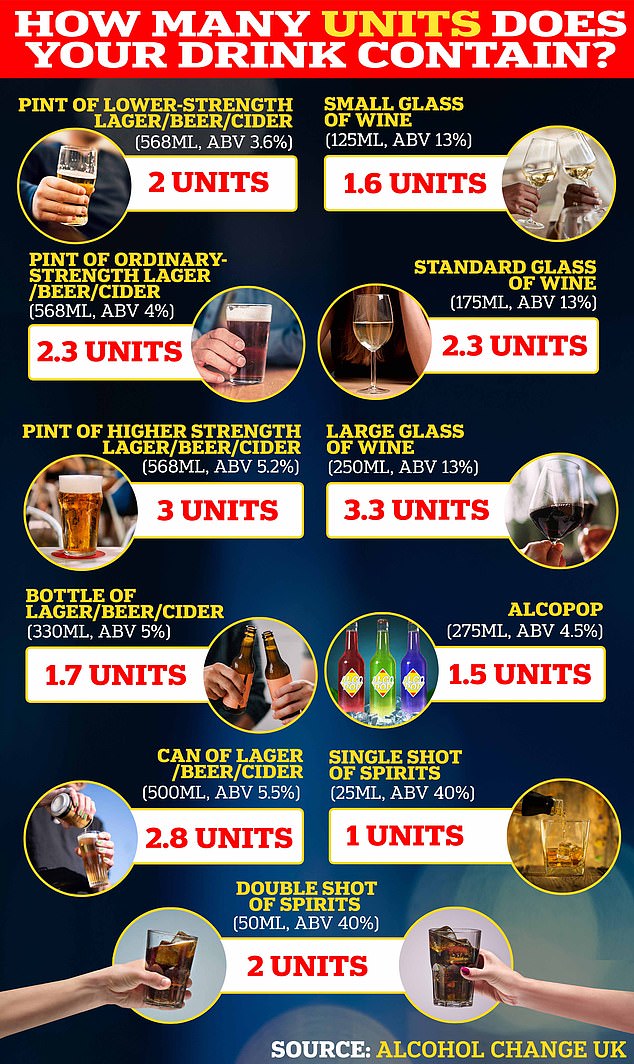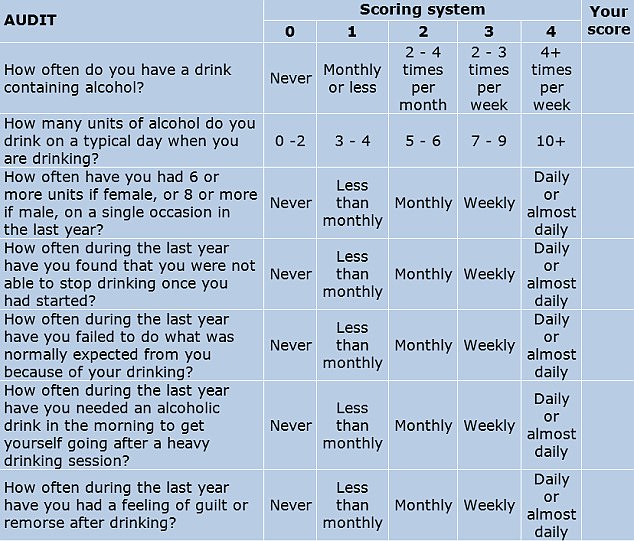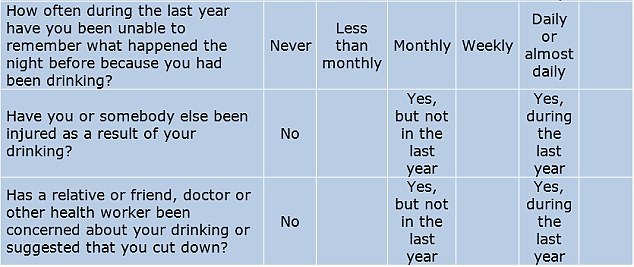Britain without alcohol: a quarter of adults are now teetotalers – more than a third of Gen Z are avoiding alcohol over fears of ‘drunk’ photos appearing on social media, research shows
More and more Britons are giving up drinking, with more than a quarter of the population now teetotal.
According to a survey of 2,000 adults, a whopping 27 percent of adults in the United Kingdom are not drinkers.
For people under 25, also known as Generation Z, that percentage is as high as 36 percent, according to a study among 2,000 adults.
Two years ago the number of 18 to 24 year olds shunning alcohol was 24 per cent, while the overall figure for Brits on the road was just 13 per cent.
Around 16 per cent of Brits now identify as ‘flexi’ – switching between booze and non-alcoholic drinks – while 57 per cent describe themselves as drinkers, advertising agency Red Brick Road found.
New data shows that as many as 27 percent of British adults do not drink alcohol, while this figure rises to 36 percent for under-25s, known as Generation Z.
The agency, which has worked with Heineken, Magners cider and Jägermeister, warned that the trend away from the traditional large British pint would be a wake-up call for the alcohol industry and struggling pubs.
The biggest drinkers are Generation X, born between 1965 and 1980. 63 percent of them drink regularly.
This was followed by the baby boomers, born between 1946 and 1964, with 62 percent.
Of millennials born between 1981 and 1996, 51 percent were regular drinkers.
Some Gen Z Brits do drink, but 72 percent claim they are “afraid” of alcohol consumption and 32 percent say they are drinking less alcohol compared to last year, the research found.
Hangovers, emotional stress, skyrocketing costs for a night out and unflattering pictures of themselves drunk on social media are some of the biggest concerns under-25s have about drinking.
Many young people would also prefer to buy ‘statement drinks’, the report found, with 37 per cent drinking drinks that are popular online.
Nearly half said their ‘online image’ was in the back of their minds when drinking, often ordering ‘more luxurious’ drinks such as cocktails or champagne, known as ‘liquid accessorising’.
Nearly two-thirds of respondents said health was important when choosing their drink. Generation Z chose alternatives with little or no alcohol on average 2.1 days per week. That is the highest percentage of all age groups.

The NHS recommends that people drink no more than 14 ‘units’ of alcohol – around six glasses of wine or pints of beer – per week. This has been watered down in recent decades in light of research illustrating the health risks of alcohol
David Miller, CEO of the London company, which commissioned Opinium to survey 2,000 British adults, said the change in drinking habits presented the sector with a golden opportunity to make money from non-alcoholic drinks.
He said: “We are seeing seismic changes in the alcohol category with huge implications for the alcohol industry.
“But there are some incredibly positive opportunities for smart brands to join or take advantage of.
‘Especially if brands want to appeal to Generation Z, who have a completely different relationship with alcohol than other generations.’
Two-fifths of Gen Z said cutting back on booze had improved their mental health.
And two-thirds said they were more likely to visit a bar for pub games or quiz nights than for a blotto.
Mr Miller added: ‘It is important for brands, bars and pubs to analyse their marketing strategies to ensure they attract new young consumers while also expanding their current market.
‘There are enormous economic opportunities if we respond to new behavior instead of repeating the same old song over and over again.’
Sales of non-alcoholic and non-alcoholic drinks are predicted to give the UK economy a £2.75 billion boost during the 2024 European Championship.
Tesco said it would sell 5.5 million bottles and cans during the tournament.
The report also warned that ‘the days of sharing scampi fries and pork snacks may be numbered’, with three in five younger consumers expecting healthy snacks such as olives, unsalted nuts or roasted chickpeas.


